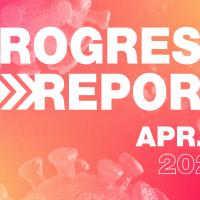As the cost of preschool continues to rise, many parents have started looking to new models of early childhood education, such as in-home, private preschool. The average cost of traditional preschool in the U.S. is currently around $10,000 per year, while surprisingly, preschool teachers only make around $30,000 per year.
The team at Wonderschool is rethinking the system by providing the necessary resources for educators to offer affordable, private preschool at-home. As the founder and CEO, Chris Bennett, explains, “We make it easy for someone to start and operate a high-quality early childhood education program and make it easy for parents to find and enroll in these programs.”
Obstacles to Early Childhood Development
Students who attend preschool have their social, emotional, and academic needs met on a greater level than those who do not. Research shows that 90% of brain development occurs before the age of 5 and yet preschool, where so much of this development can be fostered, is prohibitively expensive.
Many American families feel “priced out” of preschool. Less than half of the three year-olds in the U.S. are currently enrolled. Meanwhile, red tape and steep real estate prices make it increasingly difficult for schools to be built or for quality teachers to be hired at a respectable wage.
The costs of opening and operating a preschool facility force directors to set high tuition costs and low teacher salaries. But what if a teacher could open up a school in their own home? Or in a local park?
A Better Model for Preschool
As a child, Chris Bennett always did well in school. He was the first in his family to go to college and has since started several companies, including Wonderschool. When considering the genesis of his own success, he realized it could not be attributed to luck, but rather, to the early childhood education he had access to.
A landmark study called the Perry Preschool Project found that kids who went to preschool were more likely to graduate from college. They also had better relationships with people around them, earned more, and lived healthier lives. Furthermore, the children of these children who went to preschool had better outcomes as well.
Bennett founded Wonderschool because he believes that every child should have access to a quality preschool experience. By empowering educators to offer private preschool at home, he hopes to achieve this ambitious goal.
WonderSchool works similarly to Airbnb in that it handles the listings, communication, and transactions for a private preschool while also taking care of the administrative work that goes on behind the scenes.
This helps the teacher to focus on what they do best. It also allows teachers to get more creative with the learning environments they wish to create, and all of this leads to more choices for parents looking for targeted learning opportunities to meet their child’s unique needs.
David Calabrese, Director of Little Earthlings Forest School, runs an outdoor school in the San Francisco area where children can play outside all day, rain or shine. Calabrese says, “Students in a regularly-formatted preschool facility would never have access to the daily opportunities that these students have, nor would the teachers have the freedom to teach in this manner.”
“What Wonderschool has done for me,” Calabrese continues, “is to allow me to be able to create the program that I want to create, one that I love, and to make a living at it.”
Making Early Childhood Education Equitable
The Wonderschool model allows Kristina Gonzalez, Director of Little Robles in San Francisco, to run a thriving private preschool at home. Her school has been so successful that she was able to move into a larger home which now utilizes the entire bottom floor for classes.
The average Wonderschool director earns roughly $70-80,000 per year, with the most successful director earning $300,000. The model’s substantially lower overhead costs mean that while these teachers earn much more, they can also charge families much less, making quality education accessible to all.
Access to early childhood education should be a fundamental right for young learners, not a privilege. With 500 schools operating in the U.S. and ongoing expansion into new cities, Wonderschool seems well-poised to shake the foundation of an antiquated system and reshape how America’s preschoolers are educated.
For more interesting news about the people and ideas that are changing our world, subscribe to Freethink.
